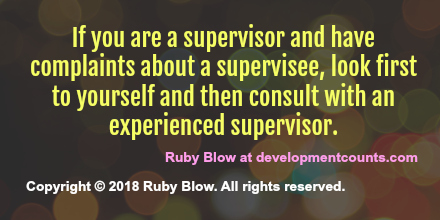Perfectly Imperfect
We are all made “perfectly imperfect!”
I am not saying this from a religious or spiritual perspective. I know that many will apply that paradigm.
I welcome that way of understanding and being in the world. However, I am also in full support of those who are atheists and secular humanists and those who are of any variety of religious orientations.
I experience people’s religious affiliation as deeply personal and as function of culture. Our cultural roots and underpinnings provide us with a common way of understanding the world. Religion provides great meaning and comfort for many as well as a sense of purpose and connection.
However, I do not believe that you have to be religious or spiritual to grasp this existential tenet – “None of us is perfect!” What I am describing as “perfectly imperfect!”
It’s Okay to Not Be Someone Else’s Ideal
I believe that it is allowable and okay for people to stumble and/or falter. It also simply a reality of life. It is okay…
- to not be the best public speaker;
- to sometimes put your foot in their mouth;
- to occasionally be insensitive;
- to drop the ball at work and not be vilified;
- to have a bad day… and a little bit of a bad attitude or even a foul mouth.
- It’s okay not to appear physically in the way others would have you appear;
- you can be short, round, tall, thin, bald, hairy, fair skinned, dark skinned.
- your clothes and/or hairstyle may be out of date and so on.
- It’s okay to not have the fanciest car.
- It’s okay to not be “cool.”
On Abuse, Mistreatment or Intentional Insults
Now I am not saying I think that it is okay to mistreat others or abuse others. I am also not saying that we shouldn’t have some respect or regard for what is appropriate attire or appropriate ways of being in certain settings. What I am saying is –
- sometimes the organization you sent an application to is going to respond to the wrong e-mail address.
- Sometimes you won’t get the notification when you are supposed to have received it.
- Sometimes you will reach out to someone and they will be delayed in getting back to you.
- Sometimes people will misread one another’s intention in a written or verbal exchange and one or both will be hurt.
- Sometimes you will do your best and it won’t be enough.
- Sometimes you will have a rough day and despite your best efforts you may show up with a stain on your tie or your shirt.
- Sometimes your car won’t start or it will get dinged or scratched.
- Sometimes you’ll think someone is weird or strange and they may think the same thing about you.
The “Burden” of Our Knowledge and Skills
I think that people attracted to the field of therapy and coaching by and large are good-hearted, well intended people. We learn so much about human behavior and personality theory and relationships with self and others.
The burden of this knowledge can mean seeing too much and knowing too much about someone else without them sharing very much with us at all.
The burden of this information and knowledge is that we can begin to believe that we can’t or shouldn’t suffer from the same challenges that every other human being faces. We may even believe that we can totally prevent living into the behaviors and personality traits that we study, treat, and/or help other people leverage and overcome.
The burden is that we see both what is working and not working. In the case of therapist, we also hone in on what is not “working” or what is “dysfunctional” in ourselves and others.
So what happens when we hold impossible standards?
What happens when we agree with our anxious or overly negative clients that they should somehow find ways to be perfect?
When we always focus on solutions and the right cognitions; instead of their humanity…instead of giving the human compassion that says…“It’s okay that that didn’t go the way you wanted” and “that you feel disappointed.” “Neither your thoughts nor your emotions are your enemy.”
Compassion
What if we relied more on compassion?
I am not saying that we should not assist people with fixed false beliefs or troubling patterns. What I’m saying is that we should not be so quick to agree that there is something wrong…when what there is is “life!”
In life our expectations about how things should “go” or “be” have a tremendous impact.
We look to others to determine how things should be.
We look to their relationships;
- their business; their career;
- their health;
- their appearance;
- their children;
- their skills;
- their money;
- their mindset…we compare, compare and then compare again.
I see this as a trend among many professionals around perfectionism.
It concerns me because I have seen how ideas of perfection can be devastating to our self perception, emotional health and thus our professional development.
Some of us are too sensitive to receive feedback…perceiving everything as criticism, because at our core we fear that we are not good enough. We fear that someone will say that we are not doing “it” right.
The sad truth is that some among us will criticize one another promptly upon one meeting or early in our interaction with one another.
The intent is not grounded in true support. It is grounded in “I wouldn’t do it that way” or “I wouldn’t make that mistake” or “You only get one chance to make an impression” and other cliches.
Real support is grounded in relationships that are built over time.
If the the only time you speak to someone is to share critical feedback, even and especially if your role with them is supervisor…you are not cultivating a relationship. As I have stated numerous times, without the relationship all else fails.
Therapists and Coaches as Human Beings
Therapists and coaches are human beings. Human beings are vastly more interesting, engaging and helpful when the facade drops away.
I’m not saying that you should give everyone a second or third chance who has disappointed you. What I am saying is that what you extend to them is what you are extending to yourself.
We hold the same standard of others that we hold of ourselves. For some among us that means trying to be “twice as good!” It also means that the internal scolding can be endless.
You will never be satisfied with your professional accomplishments if you cannot let go of ideas around perfectionism!
I used to think graduate school brought out perfectionism in people. Now I think that many people who are challenged by perfectionism seek out graduate school to hold up a mirror to their achievements. When the mirror goes away they look to their work or their loved ones or their peers to hold up the mirror and ask “Am I good enough?”
Whether you subscribe to this belief or not, our ability to promote growth, change and healing space for others is predicated upon our ability to be our authentic selves. No one is perfect. Let’s drop the facade!
Let’s not let perfection be the killer of what is human, of what is fallible, of what makes life interesting.
We live in a world that is often unfair and far from perfect. We were made perfectly imperfect in order to navigate this world.
Copyright © 2016 Ruby Blow. All rights reserved.
Share your thoughts on Linkedin, Facebook, Twitter or log in to one of your accounts below to comment. Subscribe to my YouTube channel.





